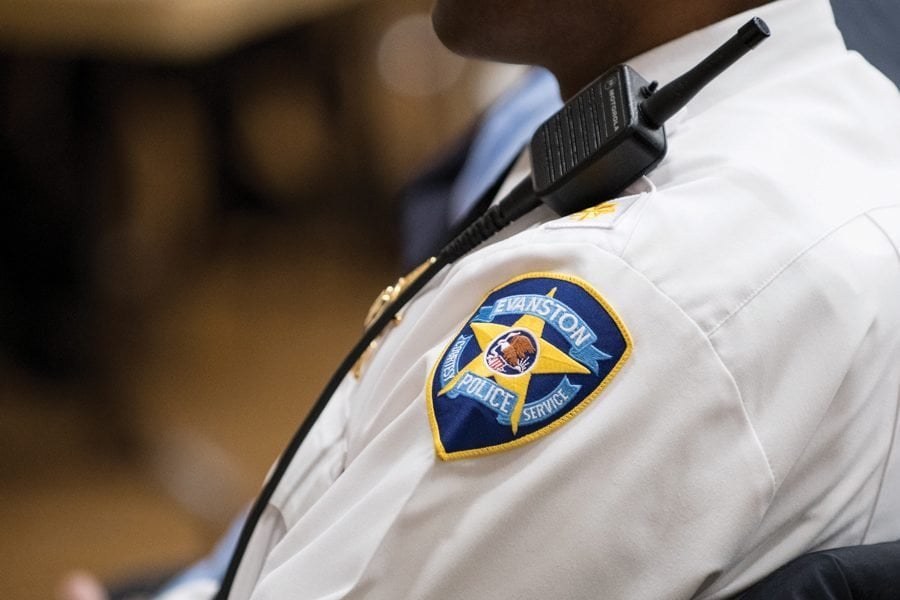Pretrial Fairness Act would make Illinois first state to abolish cash bail
Daily file photo by Colin Boyle
An EPD officer. The Illinois general assembly recently passed a bill that ended cash bail and included many other progressive police reforms.
January 21, 2021
The Illinois legislature of Representatives passed a bill spearheaded by the Illinois Legislative Black Caucus last Wednesday that would end cash bail.
The Pretrial Fairness Act, which gives Illinois until Jan. 1, 2023 to abolish cash bail, currently awaits Gov. J.B. Pritzker’s signature. Pritzker has expressed support for the bill in the past. If passed, Illinois will be the first state in the nation to end all cash bail.
Evanston mayoral candidate Sebastian Nalls, 20, said ending cash bail is a step in the right direction.
“This is an issue that hits directly at home for a lot of us,” Nalls said. “And it’s been disproportionately affecting Black and brown members of Illinois and members of the nation as a whole.”
Briana Payton, a policy analyst for the Chicago Community Bond Fund, said the money bond system is racist and classist because it makes finances the determining factor in a person’s incarceration.
People who cannot afford to post bail must stay in jail until their trials, typically for cases that do not involve violent charges. This population comprises more than two-thirds of America’s jailed population, and a majority of these pretrial detainees — 69 percent — are people of color, according to the Bureau of Justice Statistics.
“That is profoundly unjust,” Payton said. “It essentially puts a price tag on someone’s freedom.”
Those incarcerated pretrial are more likely to have to serve a prison sentence or a longer sentence, Payton said. Defendants incarcerated before their trial could also lose housing, employment, or custody over children.
Bobby Burns, an Evanston resident, political consultant and 5th Ward aldermanic candidate said ending cash bail is an effective and innovative criminal justice reform policy.
“Short of death, I think there is nothing worse than being incarcerated,” he said.
Nevertheless, the bill faces backlash. More than 112,000 people have signed a petition opposing the bill, the Chicago Sun-Times reported.
The Illinois State’s Attorneys Association put out a statement saying the bill has provisions that are “deeply problematic and will only result in further significant increases in violent crime, undermine public safety, and deny justice to crime victims.”
But Payton said the bill is a step toward progress, and to reform U.S. criminal justice systems to be less classist and racist, it is important to defend the bill until its full implementation.
Nalls said healing Black and brown communities will take time, but Evanston residents and Northwestern University students need to start by advocating for local change, like analyzing the Evanston Police Department and funding youth programs.
“The change needs to start local, and we can work our way outwards,” Nalls said. “We have the resources, especially in Evanston to make a difference and be advocates for these issues.”
Correction: A previous version of this story misspelled Briana Payton’s name. The Daily regrets the error.
Email: yimingfu2024@u.northwestern.edu
Twitter: @yimingfuu
Related Stories:
— Pretrial Fairness Act seeks to end cash bail, promote racial and criminal justice
—Criminal justice reform advocate Xavier McElrath-Bey discusses injustice and hope



